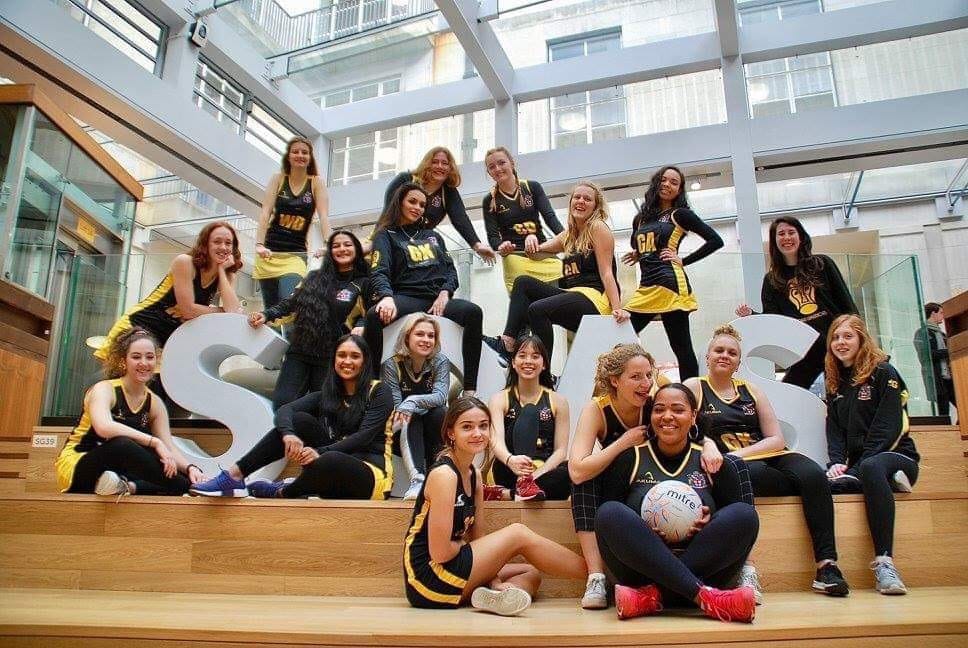Inclusion not Initiation in SOAS Netball

By, Anna Jordan BA Development Studies and History & Holly Ogborne BA International Relations and Developmental Studies
Competition in sport can be fun but the competitive element should not extend beyond that into the social aspects of a club. No one should have to prove themselves through initiation rituals or feel excluded by social hierarchies.
Anna:
Getting back into netball has been the highlight of my time at SOAS but has previously been a source of fear at other establishments. Many university sports have long-standing traditions of initiations which range from peer pressure to excessively drinking to sexual assault. These are all done in the name of bringing the teams closer together. First years are often told that, whilst everyone hates it, everyone does it and that when they progress out of first year, they will do it to the new first years themselves. These traditions are hugely alienating to many people who may want to simply play the sport or join a community. Not only this, but socials seem to be largely focused on drinking, going out and hooking up with random boys. Rarely are there any openly queer people or trans people. For a university in the centre of London, with a huge percentage of international students, clubs are often dominated by white people who make up a disproportionate majority of teams’ committees.
As a university who prides itself on being self-aware, inclusive and diverse, are SOAS sports more inclusive? Has SOAS Netball found a way to create comradery without initiations? Whilst we haven’t completely, we are trying to fight the stereotypical university sports teams experiences. Over the past few years SOAS Netball, in particular, has swelled from having one team to having three teams, a recreational squad and open sessions for queer people! This makes Netball the most active womxn only society at SOAS, with three training sessions per week and at points up to four matches and a social.
So what are we trying to do?
We are lucky to have a vocal mass of LGBTQIA+ people which has meant that more and more people have started to feel comfortable in coming out. It also means that SOAS Netball is not just an accepting space for LGBTQIA+ people but one in which they can thrive. We also have a social secretary, Roshni White-Saini, which means that the onus of organising socials doesn’t fall to the captains. By having a specific person to organise these socials, a sufficient amount of time and energy goes into organising events that are inclusive and not entirely centered around drinking. One of the key changes this year has been the addition of an independent welfare officer to our committee, Holly Ogborne.
Holly:
As the new pastoral/welfare officer for SOAS netball, I’m hoping that the role can provide a channel for people to easily access help with any issues they’re encountering, whether that is within SOAS Netball or otherwise. It should hopefully also provide another level of accountability to the society as it seeks to become even more inclusive for its members and prospective members. I’m inspired to do this role because of my experience as a member of SOAS Netball so far. I was sure of who I was before coming to university but not confident that I was worth other people’s time and friendship. Netball, especially in my second year, became somewhere where my confidence grew; I was accepted and supported even though I wasn’t always the life and soul of the party or what I thought others expected me to be. I only realised how much Netball had helped in my growth at the end of year Sports Ball when I looked back at what I was like before the year began and how much I’d grown. Though my experience hasn’t been perfect, the committee has always sought to learn and improve how the society is run, and we should continue to do so.
This year and in years to come I hope Netball can have a similar confidence-building effect for other womxn who join. This can only happen if we continue on the path of becoming more inclusive and develop an atmosphere of encouragement and acceptance. Competition in sport can be fun but the competitive element should not extend beyond that into the social aspects of a club. No one should have to prove themselves through initiation rituals or feel excluded by social hierarchies. I hope this year, and in future years, sports clubs can be places where everyone feels equal and included just as they are.
Anna:
Representation is important everywhere and, in SOAS Netball, we believe that sports societies should model themselves on more political societies, with democratic elections and accountability, because our sports club is a community as well as a grouping of individuals who want to play the sport. At university, sport can be a crucial outlet for people, with many students having mental health issues, sport can be a great help and therefore people must strive to make them as inclusive as possible.
SOAS Netball is a community of womxn who support each other so, as we grow, we must become as self-aware and as accountable as, for example, the feminist society or LGBTQIA+ society etc.
Photo: SOAS Netball 2017/18 Credit: Ali Mitib



